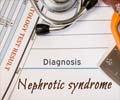A new study suggests that doctors who treat patients for kidney failure are unwilling to discuss a difficult prognosis.

The researchers interviewed 62 seriously-ill patients from two Boston area dialysis centers whose predicted one-year mortality, based on two validated prognostic models, was at least 20 percent. They found that patients were significantly more optimistic than their doctors about one and five year survival. "Overall, 81 percent of patients thought they had at least a 90 percent chance of being alive in one year, whereas nephrologists were this optimistic for only 25 percent of patients," the authors write.
"The nephrologists in our study reported they had not shared estimates of prognosis with their patients," says Wachterman, who is now a palliative care physician with the Veterans Affairs Boston Healthcare System. In fact, given the hypothetical scenario where patients asked their nephrologists for an estimate of their prognosis, over half the time the doctors reported that they would tell the patient they could not give an estimate.
The disconnect was also apparent when the researchers asked patients and doctors about the possibility of kidney transplantation.
"We know that getting a kidney transplant improves one's prognosis," says Wachterman."But our findings showed that over a third of the time patients and nephrologists were not on the same page about whether the patient is even a transplant candidate. The patients thought they were candidates and nephrologists said they were not."
Wachterman thinks that nephrologists may not want to talk about prognosis because they are concerned that they will take away patients hope. She also thinks it may help doctors to know that when patients were asked to think about if they were to have less time, would they want to focus on quality of life or living longer, more than half stated that they would "choose care focused on relieving pain and discomfort, even if it meant not living as long."
"It's hard to give a patient a difficult prognosis, but in the long-term, having that information may actually help bring patients a greater sense of hope and facilitate peace and closure because it enables them to plan for what to do with the time they have left," says Wachterman.
Advertisement
In addition to Wachterman and McCarthy, study coauthors include BIDMC investigators Edward R. Marcantonio, MD, SM and Roger B. Davis, ScD, Robert A. Cohen, MD MSc and Russell S. Phillips, MD; and Sushrut S. Waikar, MD, MPH, from Brigham and Women''s Hospital.
Advertisement
Beth Israel Deaconess Medical Center is a patient care, teaching and research affiliate of Harvard Medical School, and consistently ranks in the top four in National Institutes of Health funding among independent hospitals nationwide. BIDMC is clinically affiliated with the Joslin Diabetes Center and is a research partner of Dana-Farber/Harvard Cancer Center. BIDMC is the official hospital of the Boston Red Sox. For more information, visit
Source-Newswise















